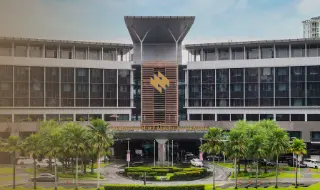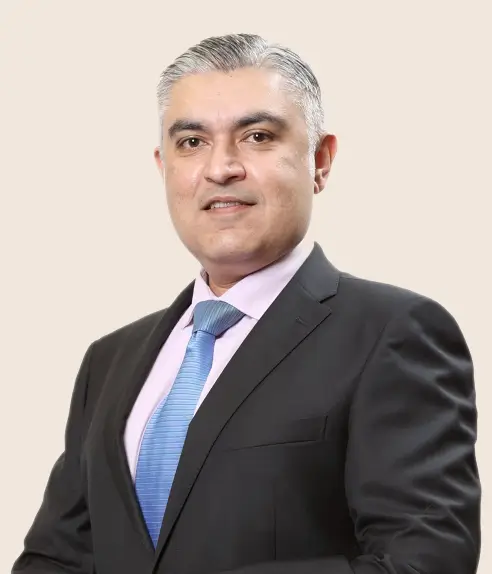What is Gastroenterology?
Gastroenterology is the medical specialty that focuses on the diagnosis, treatment, and management of conditions affecting the digestive system, including the oesophagus, stomach, small intestine, colon, rectum, pancreas, liver, and gallbladder. It is advisable to consult a gastroenterologist if you are experiencing problems with digestion or any of the following symptoms:
- Chronic abdominal pain or discomfort
- Frequent heartburn or acid reflux
- Nausea and vomiting
- Chronic diarrhoea or constipation
- Bloating or gas
- Blood in stool or rectal bleeding
- Loss of appetite or unintentional weight loss
- Difficulty swallowing or painful swallowing
- Change in bowel habits or colour of stool
- Jaundice or yellowing of the skin and eyes
Common Gastrointestinal Issues and Conditions
Many common gastrointestinal (GI) conditions involve the upper digestive tract and include diseases such as peptic ulcer disease and gastroesophageal reflux disease (GERD). Chronic and autoimmune gastrointestinal conditions are also frequently managed, including Celiac disease, Crohn’s disease, and ulcerative colitis. In addition, disorders of the liver, gallbladder, pancreas, and colon also fall under the scope of GI care.
Some of the most common gastrointestinal conditions include:
Functional gastrointestinal disorders: Include Irritable Bowel Syndrome (IBS) and functional dyspepsia, which affect how the gut functions despite normal test results.
Gastroesophageal reflux disease (GERD): Chronic acid reflux that can cause heartburn, chest discomfort, and esophageal irritation.
Peptic ulcer disease: Open sores in the lining of the stomach or duodenum, often caused by H. pylori infection or NSAID use.
Inflammatory bowel disease (IBD): Include Crohn’s disease and ulcerative colitis, both involving chronic inflammation of the digestive tract.
Celiac disease: An autoimmune reaction to gluten that damages the small intestine lining and interferes with nutrient absorption.
Colon polyps and colorectal cancer: Abnormal growths in the colon or rectum, which may be benign or precancerous and require regular screening.
Pancreatitis: Inflammation of the pancreas, which can be acute or chronic, often caused by alcohol use or gallstones.
Gallbladder and biliary tract disorders: Includes gallstones and bile duct obstruction, which can cause pain and digestive issues.
Hepatitis and other liver diseases: Inflammation of the liver due to viral infection, autoimmune conditions, or fatty liver disease.
Gastrointestinal Procedures
Gastrointestinal (GI) medicine relies on a variety of specialised procedures for both diagnosis and treatment. At Prince Court Medical Centre, our team employs advanced endoscopic, imaging, and surgical techniques to visualise, assess, and manage conditions affecting the digestive tract, liver, pancreas, and related organs.
Endoscopic Procedures
Endoscopy is a cornerstone of gastrointestinal care. Using flexible, camera-equipped tubes, doctors can examine the interior of the digestive tract and perform therapeutic interventions when necessary.
Upper GI Endoscopy: Examines the oesophagus, stomach, and duodenum to diagnose ulcers, reflux, and bleeding.
Lower GI Endoscopy (Sigmoidoscopy/Colonoscopy): Visualises the colon and rectum; commonly used for colorectal cancer screening and polyp detection.
Endoscopic Retrograde Cholangiopancreatography (ERCP): Combines endoscopy and X-rays to diagnose and treat conditions of the bile ducts and pancreas.
Endoscopic Ultrasonography (EUS): Integrates endoscopy with ultrasound to visualise digestive organs and surrounding structures, often used for cancer staging or biopsies.
Capsule Endoscopy: A non-invasive technique using a pill-sized camera to examine the small intestine; this is especially useful for hard-to-reach areas.
Diagnostic Tests
Accurate diagnosis of GI disorders often involves specialised testing to assess function, structure, and pathology.
Manometry and pH Monitoring: Measures pressure and acidity levels in the oesophagus or rectum to diagnose motility disorders and acid reflux.
Liver Biopsy: A minimally invasive procedure where a small tissue sample is taken to diagnose liver diseases or assess the extent of liver damage.
Minimally Invasive and Surgical Procedures
When medical treatment or endoscopy alone isn't sufficient, minimally invasive surgery may be recommended for therapeutic intervention.
Laparoscopic and Robotic-Assisted Surgery: Techniques used for gallbladder removal, hernia repair, and colorectal surgery, offering shorter recovery times and less postoperative pain.
Intragastric Balloonplasty: A non-surgical weight management procedure where a saline-filled balloon is inserted into the stomach to induce satiety and reduce food intake.
One of the Best Hospital for Gastroenterologist in Kuala Lumpur, Malaysia
Expertise and Specialisation
At Prince Court Medical Centre, our gastroenterology specialists, also known as gastroenterologists are highly skilled and experienced, having received training from prestigious medical institutions worldwide. With their extensive experience, they are well-equipped to diagnose and treat various gastrointestinal diseases effectively.
Advanced Technology
At Prince Court Medical Centre, we are committed to providing the latest and most advanced technologies for accurate and timely diagnoses, as well as safe and effective treatment options. Our state-of-the-art endoscopy unit is equipped with:
- Digital Multi-purpose Flat Panel Fluoroscopic System
- An advanced system that enables physicians to better diagnose problems in the liver, gallbladder, bile ducts, and pancreas
- Diagnostic and Therapeutic Endoscopic Ultrasound (EUS)
- This advanced modality combines endoscopy with ultrasound technology to provide detailed imaging of the gastrointestinal tract and surrounding abdominal organs
- Useful in staging gastrointestinal cancers, as it allows for a more accurate assessment of tumour depth and lymph node involvement
- Our team of dedicated pathologists is on-site to assist with tissue biopsies obtained during EUS-guided fine needle biopsies, ensures a faster diagnosis and allows for the timely initiation of appropriate treatment strategies
- Capsule endoscopy
- A non-invasive procedure that involves swallowing a small, disposable capsule containing a camera
- As the capsule travels through the digestive system, it captures images of the small bowel, providing valuable information for the evaluation of conditions such as unexplained causes of anaemia and small bowel disorders
- Colonoscopy
- Advanced technology and techniques to detect abnormalities, such as polyps, tumours, or signs of inflammation
- Crucial for early detection and prevention of colorectal cancer
- Our GI doctors ensure a comfortable and thorough examination to promote your digestive health
High Success Rate
Our success rate speaks for itself, as we have treated numerous patients over the years, and many have benefited from our personalised treatment plans. We understand that every patient's condition is unique, and our stomach specialists take the time to develop individualised treatment plans that address the root cause of the problem. We aim to make our patients feel comfortable and supported as they receive the best possible care for their digestive health, through our commitment to personalised and comprehensive treatment plans.























